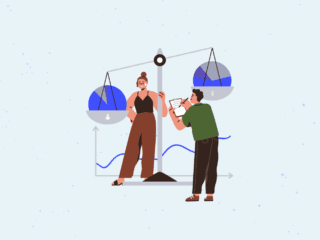A friend of mine, Mike, is an antique dealer (or a junk dealer, depending on whom you ask). Every time I visit Mike, he amuses me with stories about the weird things customers do and say. Most of these stories deal with pricing issues. For example:
- He once had a gorgeous antique wood stove. Since it took up a lot of room in his shop, he priced it below market value “so it would move faster”. Though many customers admired it, nobody bought it. After a few weeks, acting on a hunch, Mike doubled the price. It sold the next day.
- On several occasions, he’s essentially been asked, “Don’t you have anything more expensive?” In one case, a woman was looking for an antique Tiffany-style lamp. Mike showed her some lamps; one was exactly what she was looking for. She absolutely swooned over it, until she saw the price of $250. Obviously disappointed, she turned to Mike and said, “Oh, I was really looking for something in the $700 range…”
It’s easy to laugh at the people in these stories, but you know what? We all do it. We assume that if something is cheap, it can’t be any good. And of course, if something is super expensive, it must be wonderful. Why??
It’s an adaptive shortcut. Not being willing or able to do a real evaluation, we simply look at the relative prices and assume the more expensive one is better. Of course, it’s not always true. But it’s generally true, and it’s easier than doing a real evaluation.
Even more interesting, is that after making our purchase, we tend to convince ourselves that more expensive items are worth it. Take for example the experiment reported by Dan Ariely*, in which all subjects were given the same “prescription pain reliever” (actually just vitamin C):
- Of patients told the drug cost 10 cents per pill, only half reported that it worked
- Of patients told the drug cost $2.50 per pill, almost all reported that it worked
In addition to “High Price Equals Good”, there are a number of factors at play in these cases. In future posts, I’ll get into more details on things like:
- How Expectations Influence Opinions
- The Placebo Effect
- Cognitive Dissonance
In the meantime, however, bear in mind how pricing can affect your customers’ perceptions of the quality of your products. Don’t assume that offering a lower price will increase your sales. The decision-making shortcut of “High Price Equals Good” often makes higher priced products more attractive.
*Ariely, Dan (2008). Predictably Irrational: The Hidden Forces That Shape our Decisions. Harper Collins, ISBN-10: 006135323X.
















